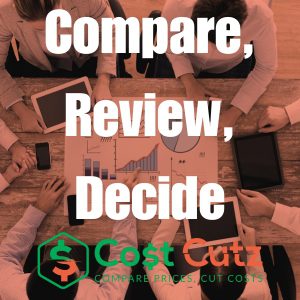
Budgeting for Success: How to Choose the Right Call Center Software Without Overspending
In today’s customer-centric business environment, call centers play a crucial role in ensuring customer satisfaction and loyalty. The efficiency and effectiveness of a call center are often determined by the quality of its software. However, selecting the right call center software that fits within a budget can be a daunting task for many businesses. Balancing cost with functionality and scalability is essential to ensure you make the right investment. This comprehensive guide will explore how to choose the right call center software without overspending, focusing on key considerations, features, and strategies to maximize value and ROI.
Understanding Call Center Software
Before diving into the process of selecting the right software, it's important to understand what call center software is and the role it plays in enhancing customer service operations.
Call center software is a tool that enables businesses to handle inbound and outbound communications with customers. It integrates various communication channels such as phone calls, emails, live chat, and social media into a unified platform. The software typically includes features like automatic call distribution (ACD), interactive voice response (IVR), call routing, customer relationship management (CRM) integration, and reporting and analytics tools.
The right call center software can streamline operations, improve agent productivity, and enhance the overall customer experience. Therefore, making an informed decision is crucial for the success of your call center.

Key Considerations for Choosing Call Center Software
When selecting call center software, there are several key factors to consider to ensure you choose the right solution without overspending:
Assess Your Business Needs
The first step in choosing call center software is to assess your business needs and objectives. Understand what you aim to achieve with the software and how it aligns with your overall business strategy. Consider the following:
- Size of Your Call Center: The size of your call center will influence the type of software you need. A small call center may have different requirements compared to a large enterprise with multiple locations.
- Communication Channels: Determine which communication channels are most important for your business. Some call center software solutions offer multichannel capabilities, allowing you to manage phone calls, emails, chat, and social media interactions from a single platform.
- Business Goals: Consider your short-term and long-term goals. Are you looking to improve customer satisfaction, increase sales, or enhance operational efficiency? Your goals will guide your software selection process.
- Current Infrastructure: Assess your existing infrastructure to determine compatibility with potential software solutions. Consider whether you need on-premises software or a cloud-based solution that offers more flexibility and scalability.
Identify Essential Features
Once you have a clear understanding of your business needs, identify the essential features that your call center software must have. This will help you focus on solutions that provide the functionality you need without unnecessary bells and whistles that drive up costs. Some key features to consider include:
- Automatic Call Distribution (ACD): Efficiently route incoming calls to the most appropriate agents based on predefined criteria.
- Interactive Voice Response (IVR): Automate call handling and allow customers to interact with your system using voice commands or keypad inputs.
- Customer Relationship Management (CRM) Integration: Seamlessly integrate your call center software with your existing CRM system to access customer data and improve service quality.
- Call Recording and Monitoring: Record and monitor calls for quality assurance, training, and compliance purposes.
- Reporting and Analytics: Gain insights into call center performance with comprehensive reporting and analytics tools.
- Scalability and Flexibility: Choose software that can scale with your business as it grows and adapts to changing needs.

Consider the Total Cost of Ownership
When evaluating call center software, it's important to consider the total cost of ownership (TCO), which includes not only the initial purchase price but also ongoing costs such as maintenance, upgrades, and support. Understanding the TCO will help you make an informed decision and avoid unexpected expenses down the line. Consider the following cost components:
- Licensing Fees: Determine whether the software is offered on a subscription basis or as a one-time purchase. Subscription-based models typically involve monthly or annual fees, while one-time purchases may require additional fees for upgrades.
- Implementation Costs: Consider the costs associated with implementing the software, including installation, configuration, and integration with existing systems.
- Training and Support: Factor in the cost of training your staff to use the new software and any ongoing support fees. Some vendors offer free training and support, while others charge additional fees.
- Maintenance and Upgrades: Evaluate the cost of maintaining and upgrading the software over time. Cloud-based solutions often include maintenance and upgrades as part of the subscription fee, while on-premises solutions may require additional costs.
Evaluate Vendor Reputation and Reliability
Choosing a reputable and reliable vendor is essential for ensuring that your call center software is supported and maintained effectively. Research potential vendors and consider the following:
- Customer Reviews and Testimonials: Look for reviews and testimonials from other businesses that have used the software. This can provide insights into the software's performance, reliability, and customer support.
- Vendor Experience and Expertise: Choose a vendor with experience and expertise in the call center industry. A vendor with a proven track record is more likely to provide high-quality software and support.
- Service Level Agreements (SLAs): Review the vendor's SLAs to understand their commitment to uptime, support, and issue resolution. A strong SLA can provide peace of mind and ensure that your software remains operational.
- Data Security and Compliance: Ensure that the vendor complies with data security regulations and industry standards, such as GDPR or HIPAA, to protect sensitive customer information.

Strategies for Choosing the Right Call Center Software Without Overspending
To choose the right call center software without overspending, consider implementing the following strategies:
Prioritize Must-Have Features
Focus on identifying and prioritizing the features that are essential for your call center operations. Avoid getting distracted by additional features that are nice to have but not necessary. By prioritizing must-have features, you can find a solution that meets your needs without incurring unnecessary costs.
Consider Cloud-Based Solutions
Cloud-based call center software offers several advantages over on-premises solutions, including lower upfront costs, scalability, and ease of maintenance. Cloud-based solutions typically operate on a subscription model, allowing you to pay only for what you use and scale up or down as needed. This flexibility can result in cost savings and a more predictable budget.
Leverage Free Trials and Demos
Take advantage of free trials and demos offered by software vendors. These opportunities allow you to test the software's features and functionality before making a commitment. Use this time to evaluate how well the software meets your needs, how user-friendly it is, and whether it integrates seamlessly with your existing systems.
Negotiate with Vendors
Don't hesitate to negotiate with vendors to secure the best possible deal. Many vendors are willing to offer discounts, flexible payment terms, or bundled packages to win your business. Be prepared to discuss your budget and specific needs, and explore options that provide the most value for your investment.
Explore Open Source Options
If budget constraints are a significant concern, consider exploring open-source call center software solutions. Open-source software is often available for free or at a reduced cost and can be customized to meet your specific needs. However, be prepared to invest in technical expertise for implementation and support.
Assess Long-Term Value
When evaluating call center software, consider the long-term value it brings to your business. While cost is an important factor, it's essential to assess how the software will improve efficiency, enhance customer satisfaction, and support your business goals. Investing in high-quality software that aligns with your strategic objectives can yield significant returns over time.

Maximizing ROI from Call Center Software
To maximize the return on investment (ROI) from your call center software, consider the following best practices:
Regularly Review Performance Metrics
Establish key performance indicators (KPIs) to measure the effectiveness of your call center software. Regularly review these metrics to identify areas for improvement and ensure that the software is delivering the expected benefits. Common KPIs include average handle time, first call resolution, customer satisfaction scores, and agent productivity.
Provide Ongoing Training and Support
Invest in ongoing training and support for your call center agents to ensure they are fully equipped to use the software effectively. Well-trained agents are more likely to utilize the software's features to enhance customer interactions and improve overall performance.
Continuously Optimize Processes
Use the data and insights provided by your call center software to continuously optimize processes and workflows. Identify bottlenecks and inefficiencies, and implement changes to streamline operations and improve customer service.
Stay Informed About Software Updates
Stay informed about updates and new features released by your software vendor. Regularly updating your software ensures that you benefit from the latest improvements and enhancements, which can enhance functionality and performance.
Foster a Culture of Continuous Improvement
Encourage a culture of continuous improvement within your call center. Empower agents to provide feedback on the software and suggest ways to enhance operations. By fostering a collaborative environment, you can drive innovation and achieve better results.
Choosing the right call center software without overspending requires a strategic approach that balances cost with functionality and scalability. By assessing your business needs, prioritizing essential features, and evaluating vendor reputation, you can make an informed decision that aligns with your budget and objectives. Implementing the right call center software can enhance efficiency, improve customer satisfaction, and support your business's long-term success.

Leave a Reply